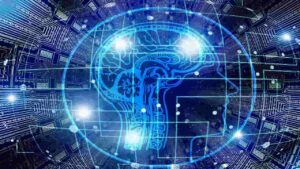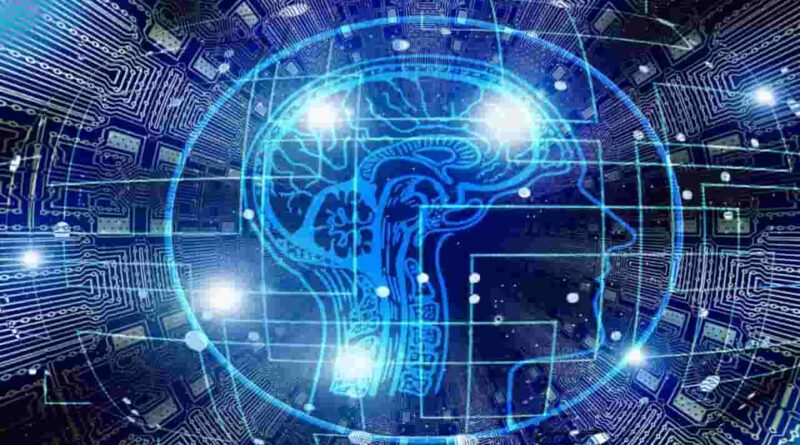Artificial Intelligence: Amazing 25 Essential Facts About AI
Artificial Intelligence: Amazing 25 Essential Facts About AI
Artificial Intelligence
Artificial Intelligence: Overview
Artificial Intelligence, or AI, has been a hot topic in recent years, with numerous advancements in the field leading to new and exciting possibilities. This article will explore what AI is, its current applications, and its future potential.
1) What is Artificial Intelligence?
Artificial Intelligence refers to the ability of machines to perform tasks that typically require human intelligence, such as learning, problem solving, pattern recognition, and decision making. AI systems can be designed to mimic human behavior or surpass it, leading to new and innovative solutions to a wide range of problems.
Artificial Intelligence: 2) Applications of AI in Today’s World
AI is being used in many industries and sectors, including healthcare, finance, retail, and transportation. In healthcare, AI is being used to diagnose diseases, predict outbreaks, and develop personalized treatments. In finance, AI is being used for fraud detection, risk assessment, and portfolio management. In retail, AI is being used to analyze consumer data, optimize supply chains, and enhance customer experiences. In transportation, AI is being used for self-driving cars, traffic management, and route optimization.
3) The Future of AI
Artificial Intelligence: While AI is already transforming many industries, its potential for the future is vast. In the future, AI could help solve some of the world’s biggest problems, such as climate change, poverty, and hunger. AI could also lead to new and exciting advancements in fields such as medicine, education, and energy. However, with the increasing use of AI, there are also concerns about job displacement, privacy, and security. It is important that we continue to develop and use AI responsibly to ensure that its benefits are maximized while minimizing its risks.

4) History of AI
Artificial Intelligence: The history of AI can be traced back to the 1950s, when researchers first began exploring the potential of computers to perform tasks that typically require human intelligence. Over the years, AI has gone through various phases of development, including the “AI winter,” a period of reduced funding and interest in the field, followed by a resurgence in the 1990s and 2000s. Today, AI is a rapidly growing field, with numerous advancements and new applications being developed every day.
Artificial Intelligence: 5) Types of AI
There are several types of AI, including narrow or weak AI, which is designed to perform a specific task, and general or strong AI, which is capable of performing a wide range of tasks. Another type of AI is deep learning, which involves training AI systems using large amounts of data to enable them to make decisions and predictions.
Artificial Intelligence: 6) Challenges and Limitations of AI
Artificial Intelligence: Despite its many potential benefits, AI also faces several challenges and limitations. For example, AI systems can be biased or perpetuate existing inequalities if the data they are trained on is not diverse or representative. Additionally, AI systems can be vulnerable to attacks, and there are also privacy concerns surrounding the collection and use of data for AI training. Finally, there is a need for ethical considerations and regulations around the development and use of AI to ensure that its benefits are maximized while minimizing its risks.
Artificial Intelligence: Amazing 25 Essential Facts About AI
Artificial Intelligence: 7) The Importance of Human-AI Collaboration
While AI has the potential to perform many tasks that typically require human intelligence, it is important to understand that humans and AI systems can complement each other in many ways. For example, humans can provide emotional intelligence, empathy, and ethical decision making that AI systems lack, while AI systems can provide efficiency, scalability, and accuracy in tasks that are difficult or impossible for humans to perform. By working together, humans and AI systems can achieve more than they could alone.
8) The Impact of AI on Society
Artificial Intelligence: AI is having a profound impact on society, with both positive and negative consequences. On the positive side, AI is improving our lives in many ways, such as by improving healthcare, making transportation safer and more efficient, and increasing productivity in many industries. On the negative side, AI is also leading to job displacement, exacerbating existing inequalities, and raising concerns about privacy and security. It is important to carefully consider the impact of AI on society and to develop strategies to address the challenges and maximize the benefits.
Artificial Intelligence: 9) The Future of Work and AI
One of the most significant impacts of AI on society is its impact on the future of work. While AI has the potential to automate many tasks and create new jobs, there are also concerns about job displacement and the need for workers to develop new skills to remain competitive in the changing job market. Governments, businesses, and educational institutions must work together to ensure that workers are prepared for the future of work and that the benefits of AI are distributed fairly.

Artificial Intelligence: 10) The Importance of AI Education and Awareness
Artificial Intelligence: In order to ensure that AI is developed and used responsibly, it is important to raise awareness about AI and to educate the public about its capabilities and limitations. This includes educating students and workers about the skills they will need to succeed in the future of work, as well as educating policymakers and the public about the ethical and social implications of AI. By increasing awareness and education about AI, we can help ensure that its benefits are maximized while minimizing its risks.
11) The Role of Governments in AI Development
Governments have a critical role to play in the development of AI, both in terms of regulation and investment. On the regulatory side, governments must ensure that AI is developed and used in an ethical and responsible manner, while also protecting the privacy and security of citizens. On the investment side, governments can play a key role in funding basic research and development in AI, as well as supporting innovation and commercialization in the field.
12) The Ethics of AI
The development and use of AI raises a number of ethical questions and concerns, including questions about bias, accountability, and transparency. There is also a need to consider the ethical implications of AI in various domains, such as healthcare, criminal justice, and national security. In order to ensure that AI is developed and used ethically, it is important to establish clear ethical principles and guidelines, as well as to engage in ongoing dialogue and debate about the ethical implications of AI.
13) The Importance of International Cooperation in AI
AI is a global phenomenon with far-reaching implications for the entire world. As such, it is important for countries to work together to ensure that AI is developed and used in a responsible and ethical manner. This includes cooperation on issues such as regulation, investment, and education, as well as collaboration on research and development in the field. By working together, countries can help ensure that AI benefits everyone and is used for the greater good.
Artificial Intelligence: Amazing 25 Essential Facts About AI
14) The Intersection of AI and Human Rights
As AI becomes more integrated into our lives, it is important to consider the implications for human rights. For example, AI has the potential to infringe on privacy rights or to perpetuate existing biases and discrimination. It is essential to ensure that AI is developed and used in a manner that is consistent with international human rights norms and standards.
15) The Role of the Private Sector in AI Development
The private sector, including tech companies and startups, has a significant role to play in the development and deployment of AI. Private companies are often at the forefront of AI innovation and are driving many of the advances in the field. However, the private sector also has a responsibility to ensure that AI is developed and used in a responsible and ethical manner, and to address the challenges posed by AI to society.
16) The Importance of Human-AI Collaboration
As AI becomes more advanced, it is important to consider the role of humans in AI systems. Human-AI collaboration has the potential to unlock new possibilities and create more value than either humans or AI alone. By considering the ways in which humans and AI can work together, we can help ensure that AI is developed and used in a way that benefits society and maximizes its potential.
17) The Security and Privacy Concerns of AI
As AI becomes more integrated into our lives, there are growing concerns about its impact on security and privacy. AI systems can be vulnerable to hacking and other forms of cyberattacks, and the data generated by AI can be used for malicious purposes. It is essential to ensure that AI systems are secure and that the data they generate is protected, in order to safeguard the privacy of individuals and organizations.
18) The Intersection of AI and Environmental Sustainability
AI has the potential to both help and harm the environment, depending on how it is developed and used. For example, AI can help reduce greenhouse gas emissions and improve energy efficiency, but it can also increase energy consumption and contribute to resource depletion. It is important to consider the environmental implications of AI and to develop strategies to ensure that AI is used in a manner that is consistent with environmental sustainability.
19) The Challenges of AI Adoption
While AI has the potential to bring many benefits, there are also challenges to its widespread adoption. These challenges can include a lack of understanding about AI, technical challenges, and the need to address existing biases and discrimination. In order to ensure that AI is adopted and used in a responsible and effective manner, it is important to address these challenges and to educate the public about AI.
Artificial Intelligence:20) The Potential of AI in Healthcare
AI has the potential to revolutionize healthcare by improving diagnosis, treatment, and patient outcomes. For example, AI can help identify patterns in medical data, assist in diagnosis, and personalize treatments. However, it is important to consider the ethical implications of using AI in healthcare, such as privacy concerns, and to ensure that AI is used in a manner that is consistent with patient-centered care.
21) The Role of AI in Education
AI has the potential to transform education by providing personalized learning experiences and improving access to education. For example, AI can be used to create adaptive learning systems, virtual tutors, and educational games. However, it is important to consider the potential downsides of AI in education, such as increasing automation and reducing the role of human teachers.
22) The Use of AI in Criminal Justice
AI is increasingly being used in criminal justice, such as in the development of predictive policing systems. While AI has the potential to improve public safety and reduce bias, it is important to consider the ethical implications of using AI in criminal justice, such as the potential for algorithmic bias and the infringement of civil liberties.
23) The Future of Work and AI
As AI becomes more advanced, there are growing concerns about its impact on employment and the future of work. While AI has the potential to automate many tasks and create new job opportunities, it could also displace workers and increase income inequality. It is important to consider the impact of AI on employment and to develop strategies to ensure that the benefits of AI are shared widely and that workers are protected.
24) The Regulation of AI
As AI becomes more integrated into our lives, there is a growing need for regulation to ensure that AI is developed and used in a responsible and ethical manner. This can include regulation of AI applications, data protection, and privacy. It is important to ensure that regulation of AI is flexible, adaptable, and proportionate, in order to promote innovation while also protecting society.
Artificial Intelligence: 25) The Ethics of AI
As AI becomes more advanced, it is important to consider the ethical implications of its development and use. This can include issues related to accountability, transparency, and bias. It is essential to ensure that AI is developed and used in a manner that is consistent with ethical principles, such as respect for human rights and dignity.
Artificial Intelligence: Amazing 25 Essential Facts About AI
Artificial Intelligence




